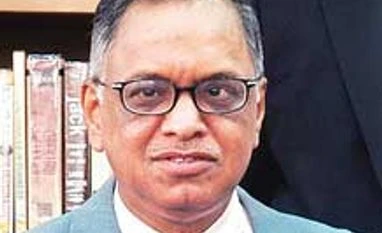SMAC to take few years to reach 'critical mass': Murthy
Organisations yet to embrace these technologies in a large way
)
At a time when industry leaders and analysts are betting big on new technologies like social, mobility, analytics and cloud (SMAC), India's second largest information technology (IT) services company, Infosys' Executive Chairman NR Narayana Murthy today said it would still take some years for these technologies to become mainstay for businesses.
“While Infosys is doing many projects in these (SMAC) areas, they are all small projects because organisations have not embraced these technologies in such a large way that we could get a $100 million project or even a $30 million project. These are still small,” Murthy said while addressing investors in an event organised by Bank of America Merill Lynch.
He said, clients have the perception that these technologies cannot be off-shored easily, and hence “it will take a few years before these technologies reach a critical mass”.
Also Read
Even as the SMAC stack has been a part of trend forecasts for several years now, traditional IT has remained the mainstay of Indian services companies. Traditional services such as application development and maintenance work accounts for over 50 per cent of the revenue of most large Indian IT firms.
Murthy's remarks come just a week after IT industry body Nasscom said that India’s software industry exports may be driven by analytics and cloud-based services.
IT research firm Gartner expects the use of cloud computing to become the bulk of new IT spending.”2016 will be a defining year for cloud as private cloud begins to give way to hybrid cloud, and nearly half of large enterprises will have hybrid cloud deployments by the end of 2017,” Gartner said.
Several industry players have been betting on SMAC becoming mainstream in the near-term, and investing heavily into this area.
Murthy, also said that Infosys has developed world-class capabilities in these new technologies. “If you are talking of mobility, analytics, cloud computing, let me ensure you that Infosys is not behind anybody else on a global basis. Infosys is not behind any competitor in so far as these technologies are concerned. Period,” he said.
More From This Section
Don't miss the most important news and views of the day. Get them on our Telegram channel
First Published: Feb 19 2014 | 7:16 PM IST


